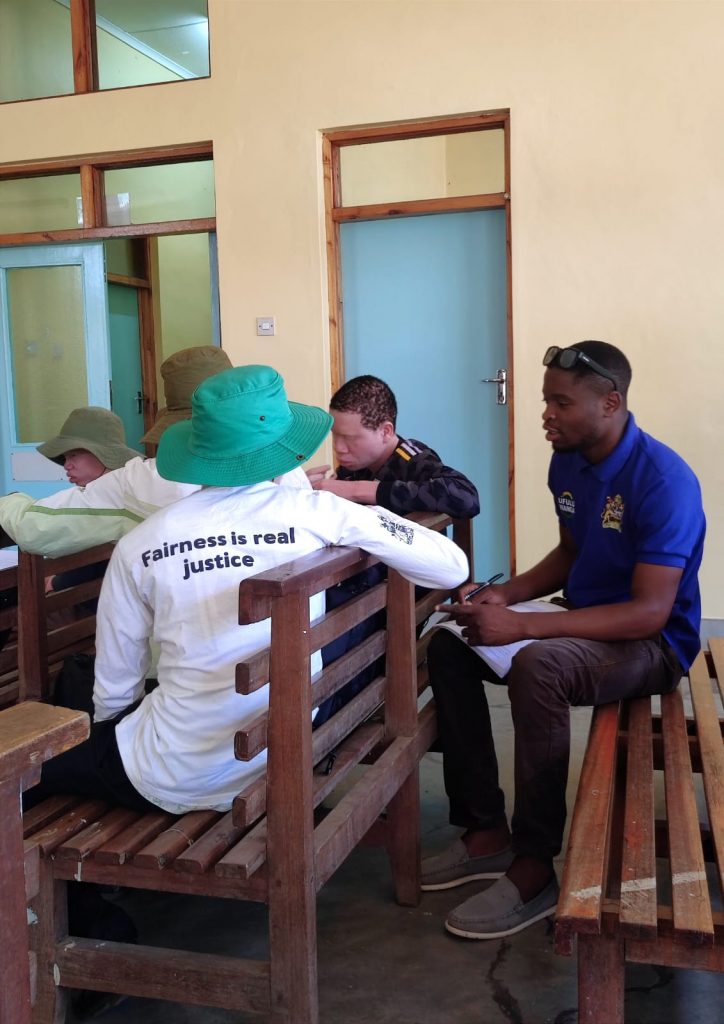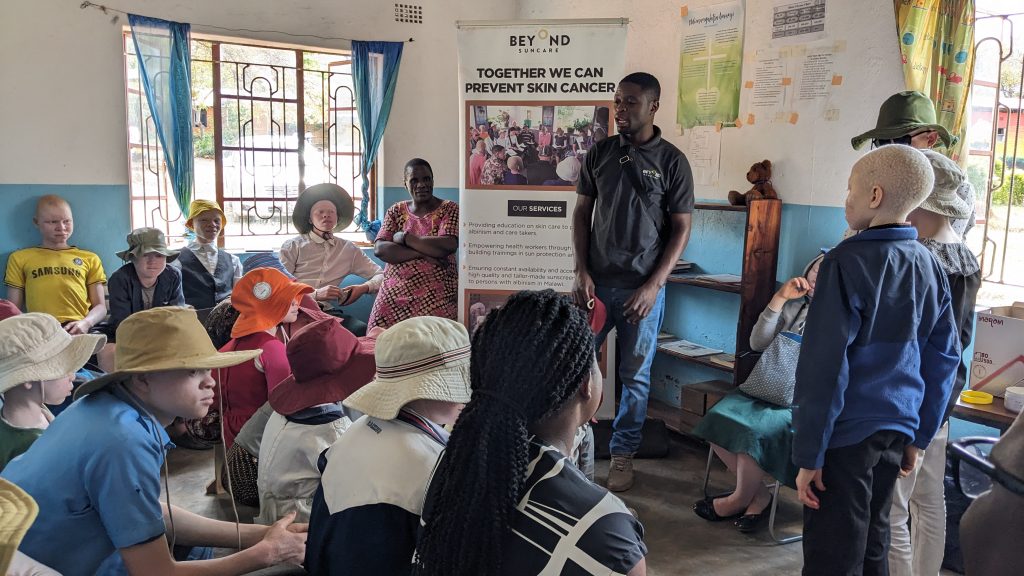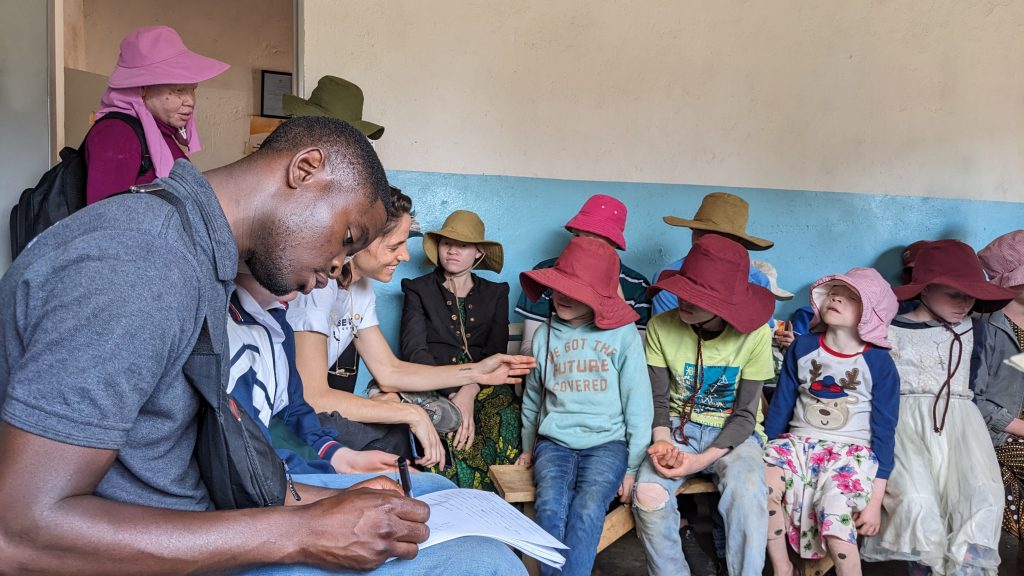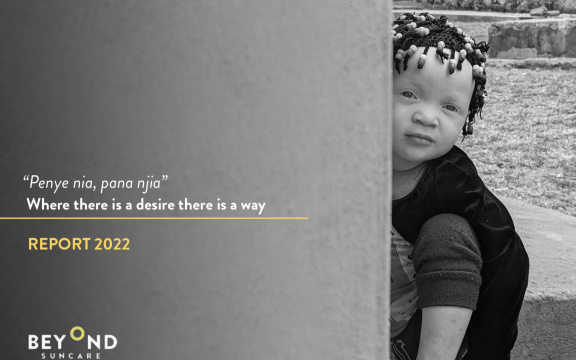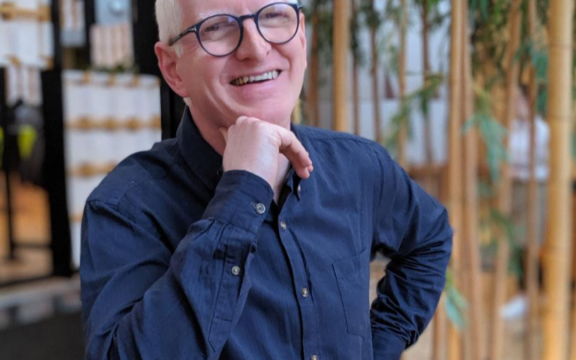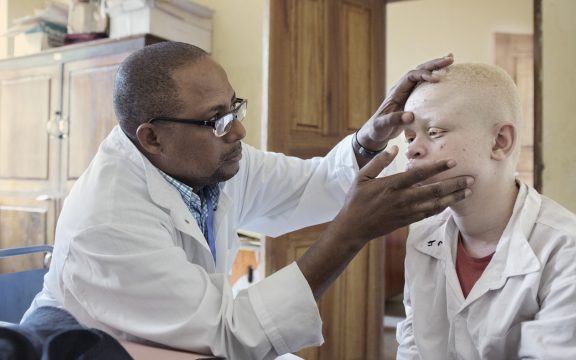We talk with our colleague Eddingtone Chisui, who has been working for four years in Beyond Suncare as Monitoring and Evaluation Manager in Malawi. “Eddie” has accompanied our work in Malawi even before we existed as an NGO.
- Why did you decide to work for an NGO?
I just love being surrounded by people who are in dire need. This world alone needs people who wish well for others, humanity can not be if there is no love for one another. What I love most about working for Beyond Suncare is that the project allows us to directly interact with people with albinism, and there is a direct impact made towards their lives. Education part is what is more exciting.
- What does it mean to you to work for an NGO like Beyond Suncare?
Working in an NGO like Beyond Suncare means a lot to me. Growing up in my family, my parents were fond of helping the needy and that’s what was planted in me. In Malawi, most Persons with Albinism (PWA) are sidelined, discriminated against, not involved, and not seen as people who can make a big impact in many areas of life.
The nature of my work involves interacting directly with the beneficiaries, giving them hope that they can be and do anything, and seeing them changing their mindsets is what makes my work more exciting.
- Before working at Beyond Suncare, what did you know about people with albinism?
I must admit that working for Beyond Suncare has helped me a lot in terms of knowing who or what a PWA is. There was one thing that we were usually saying about PWAs when we were kids; the saying that “PWAs do not die, they just get missing and that there is no grave yard for them”. Just to realize now that many of them are killed with the belief that their body parts can be used for rituals. Indeed, ignorance bliss, because joining Beyond Suncare, has taught me about all the lies I used to believe about PWAs. I have always wanted to be involved in fighting for their rights, and giving them hope.
- What knowledge do people have about people with albinism in Malawi?
Generally, in Malawi, we still have a lot of myths that people have about albinism. A recent example was when we went out for quality control at one of the facilities where a guardian completely stated that she gave birth to a person with albinism because she was laughing at or mocking another parent who gave birth to a child with albinism. Some still think that albinism is contagious. However, with the so much efforts that Beyond Suncare, and other partners are putting, we can see change in other areas, though there is still too much work to be done.
- Do you think that knowledge and care for people with albinism has improved in recent years?
Even though there seems to be a gap in understanding albinism, we have witnessed a tremendous change in the status of PWAs in Malawi. Inclusion and empowerment have been the talk of the day. Many of them are being enrolled in schools and universities. Not only on social aspects, but as well many of them are putting into practice the sun protection measures (sun safe practices), to avoid skin cancer.
In 2020 we launched the Skin Cancer Prevention Program in 6 districts of Malawi. Since then, our work has expand and, with our partners, we currently work in 23 of Malawi’s 28 districts.
- How is Beyond Suncare’s work in Malawi?
As an organization fighting for the rights of PWAs in Malawi, our main focus has been to build capacity among health workers, in all the sites where the programme is being implemented. Therefore, our work involves training health workers about albinism and how to identify skin precancerous lesions, and how it can be treated. After the trainings, they are left to run the clinics by themselves, where among other things sunscreens are distributed to the beneficiaries, education is offered on what albinism is and how to prevent skin cancer. Many more people with albinism now practice self-care and know how to protect themselves from the sun.
- What is the specific situation of women with albinism?
There is a belief in Malawi that when you are HIV positive and you have sex with a lady with albinism, the virus dies. In some communities’ ladies with albinism have been forced to have sex with strangers believing that they will become HIV negative. This has led to many women with albinism living in fear. Another challenge that many of them face is that some men refuse to date PWAs afraid that if something happens, they will be answerable. Furthermore, talking about discrimination in general, the women with albinism are also affected.
- Are there any cases you particularly remember?
There is one PWA, 12 years old now. In 2021, he was diagnosed with a precancerous lesion at one of the facilities. That time the lesion was very small and easy to operate and manage. When they went for an operation at one of the referral hospitals, the parents refused that the kid should be operated on because of their beliefs. About four times being sent for the operations to the same hospital, they kept refusing to be operated. Until now the lesion is big and the kid is in a lot of pain. It is now that they are willing that the kid should be operated and we are trying the best we can so that we do not lose this kid.
Another case is about a 16-year-old young girl who recently succumbed to skin cancer, after being sick for 1 year. What hurts most is how she always wanted to get better so that she can go back to school.
- What does it mean to you to help people with albinism with your daily work?
For my everyday work, helping PWAs has been joyful and amazing. The programme that Beyond Suncare is implementing has a direct impact on the beneficiaries and we have attested to the change that is there in the communities about understanding albinism and self-care to prevent skin cancer. On our recent trip to Mchinji this year a 4-year-old girl with albinism was able to tell what albinism is and mentioned the sun safe practices. That’s how impactful the programme has been to the PWA community.
My wish for PWA is to see them living a fearless life, full of energy, joy, being involved in aspects of life, a life where none of them will succumb to skin cancer, and a life where there is self-love and everyone else loves them just like we do with any other person.


